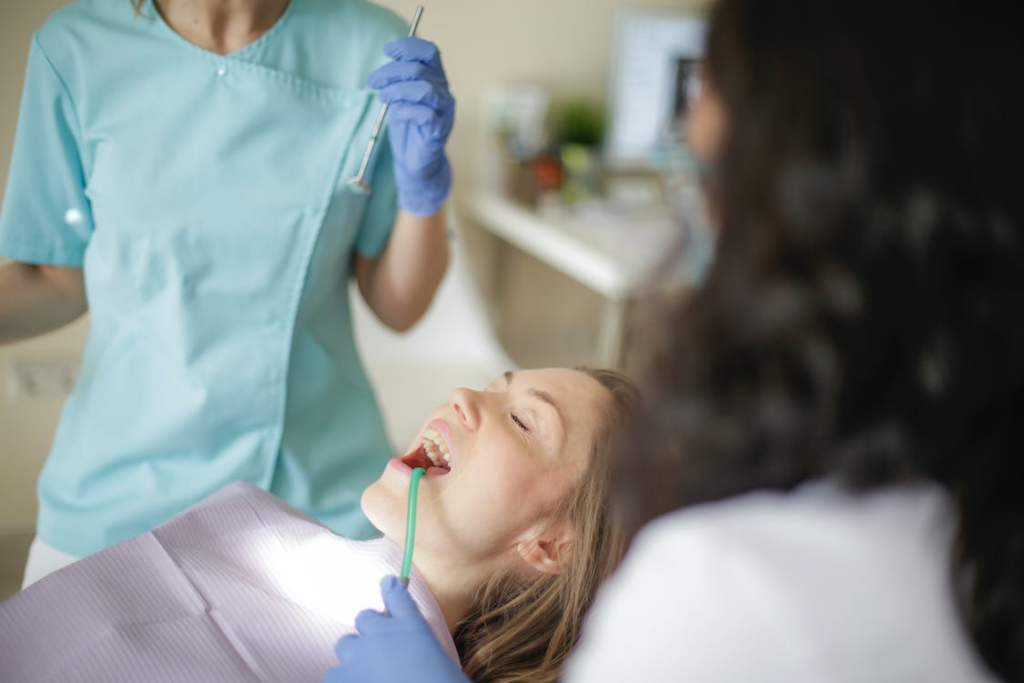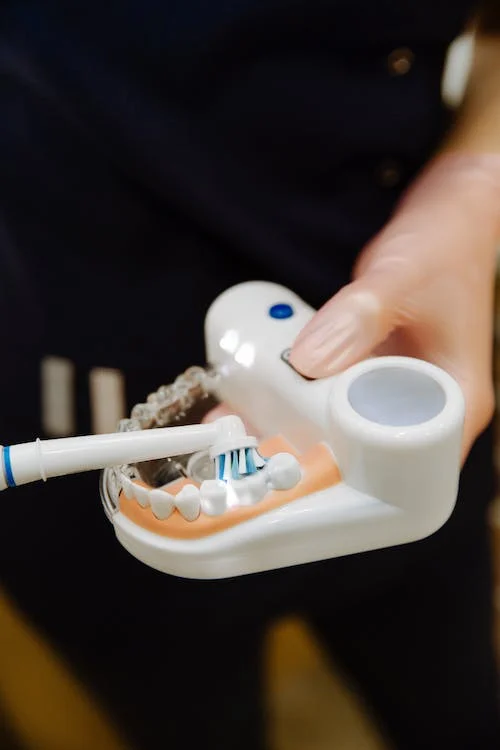
| 🦷 Tooth Decay | Exposed dentin = sharp pain with cold drinks |
| 🪥 Gum Recession | Roots exposed → cold triggers pain |
| 😬 Grinding Teeth | Wears enamel → cold sensitivity risk |
| 🍋 Acidic Foods | Weakens enamel → teeth feel cold more |
| 🦷 Cracks & Whitening | Cracks + over-whitening = sensitivity spike |
| 🦷 Fluoride & Bonding | Fluoride & bonding treatments help shield nerves |
| 🛡 Nightguards & Care | Protect enamel + avoid extreme temps for relief |
Imagine sipping your favorite icy beverage on a hot summer day, and suddenly, a sharp, shooting pain rushes through your mouth. It's a familiar scenario for many people who experience tooth sensitivity to cold sensations.
This common dental issue can be a real buzzkill when you're trying to enjoy your favorite treats. In this comprehensive guide, we'll delve into the world of sensitive teeth, exploring the causes, solutions, and everything in between.

Before diving into the details, let's start with the basics. When we say a "tooth is sensitive to cold," we mean it reacts to cold temperatures with pain or discomfort.
This discomfort can range from a mild twinge to a sharp, searing pain that takes your breath away.
Your oral health is crucial to your overall well-being. Neglecting tooth sensitivity to cold can lead to more serious dental issues down the road. So, it's essential to address this concern promptly.
Tooth decay is a common cause of sensitivity to cold. When your tooth enamel gets eroded due to decay, it exposes the sensitive inner layers of your tooth, causing discomfort when exposed to cold temperatures. You might notice this if you're wondering "Why are my back teeth sensitive to cold?" as the back teeth are what are primarily used to eat, so sometimes they can break down more quickly.
Regular dental check-ups can help catch and treat decay early.
As your gums recede, they expose the roots of your teeth, which are not as well protected as the enamel.
These roots are more sensitive to temperature changes, leading to cold sensitivity. Proper oral hygiene and gum care are essential to prevent gum recession.
Do you grind your teeth at night? This can gradually wear down your enamel, making your teeth more susceptible to cold sensitivity.
A custom-made nightguard from your dentist can help alleviate this issue.
Consuming highly acidic foods and drinks can weaken your enamel over time, making your teeth more sensitive to cold. Limiting your intake of such items can be beneficial.
A cracked tooth can expose the nerve endings within, leading to cold sensitivity. This issue can often go unnoticed until it becomes a significant problem.
Regular dental check-ups can detect and treat cracked teeth.
Overuse of tooth-whitening products can cause enamel erosion, leading to sensitivity to cold. It's essential to follow the instructions provided by your dentist or the product manufacturer.
You may try our teeth whitening procedure, which will prevent your teeth from being sensitive to cold because we know how to professionally and carefully handle this treatment.
Dental procedures like fillings or crown placements sometimes cause temporary cold sensitivity. This usually subsides over time, but consult your dentist for further evaluation if it persists.

Managing tooth sensitivity to cold involves adopting lifestyle changes and using products specifically designed to reduce discomfort.
Here are some effective tips to help you manage the sensitivity:
Opt for a toothbrush with soft bristles. A soft-bristled toothbrush is gentler on your teeth and gums, reducing the risk of further irritation.
Desensitizing toothpaste is formulated to alleviate tooth sensitivity. Use it regularly, following the instructions provided by your dentist for the best results.
Limit your consumption of acidic foods and beverages like citrus fruits, sodas, and vinegar-based dressings. Acid can weaken your enamel and exacerbate sensitivity.
Maintain a consistent oral hygiene routine by brushing your teeth twice a day and flossing daily. This helps prevent further enamel erosion.
Your dentist may recommend fluoride treatments or prescription-strength fluoride toothpaste to strengthen your enamel and reduce sensitivity.
If you grind your teeth at night, a custom-made nightguard can protect your enamel from further damage.
Try to avoid consuming extremely hot or cold foods and beverages, as they can trigger sensitivity. Opt for lukewarm or room temperature options.
Using a straw can minimize contact with your teeth when enjoying cold beverages, reducing sensitivity.
Don't skip your dental appointments. Regular check-ups allow your dentist to monitor your oral health and provide early intervention if needed.
If your sensitivity persists despite home remedies, consult your dentist. To address the issue effectively, they can recommend treatments such as dental bonding or a root canal.
In some cases, home remedies may not provide adequate relief. If your tooth sensitivity to cold persists, it's essential to consult a dental professional.
Here are some common dental treatments they may recommend:
When it comes to addressing tooth sensitivity to cold, it's crucial to seek the expertise of a trusted dental professional.
At Schroeder and Schroeder Dentistry, we specialize in providing comprehensive dental care, including diagnosing and treating sensitive teeth.
Our experienced team of dentists understands the nuances of tooth sensitivity and can tailor a treatment plan to your specific needs.
At Schroeder and Schroeder Dentistry, we prioritize your comfort and well-being. Our modern, state-of-the-art facility has the latest dental technology, ensuring you receive the best possible care.
Don't let tooth sensitivity to cold disrupt your life any longer.
Contact Schroeder and Schroeder Dentistry today, schedule an appointment, and take the first step towards a pain-free smile.

If you have a mouth sensitive to cold, we know that it can damper your daily life, but it doesn't have to be a constant source of discomfort.
By understanding the causes, implementing preventive measures, and seeking professional dental care when needed, you can regain your freedom to enjoy your favorite cold treats without worry.
Don't let tooth sensitivity to cold hold you back—take action, and smile confidently once again.
Yes, tooth sensitivity to cold is a prevalent issue. It affects millions of people worldwide. If you're experiencing it, you're not alone.
Prevention is possible by maintaining good oral hygiene practices, avoiding acidic foods, and wearing a mouthguard if you grind your teeth. Regular dental check-ups and cleanings play a significant role in prevention.
You can use desensitizing toothpaste, avoid extreme temperatures, and practice proper oral hygiene. These home remedies may provide relief for mild cases.
If your sensitivity persists or worsens despite home remedies, you must consult a dentist for a proper diagnosis and treatment plan. Early intervention can prevent more severe issues.
When emergencies arise, please call us immediately so we can fit you into our schedule as soon as possible. We will work quickly to help get you out of pain and prevent any harm to your smile until you can return for any further care you need.

In June, I started calling different places to become a patient with a new dentist since I moved to a different side of town! I was welcomed with open arms through the phone with Mrs. Jane and we actually had a friend in common... what a small world.
She sent me the paperwork I needed to fill out prior to coming to my first appointment. I initially came in for a general cleaning since it's been a year, but I knew deep down inside I really needed to get my two sets of bridges in place as well. I've honestly been dreading this procedure for the last 5 years due to the unknown, but Dr. Miles showed me a video and of course I had a lot questions.
I had learned that I could get both done at the same time, and it would be cheaper too. So with several visits to the dental office, I finally received my permanent bridges on Thursday, August 8th. I am happy camper for sure and after the anesthesia subsided and of course after taking a nap... all I could think about was eating I nice big ole steak from Texas Roadhouse! I couldn't believe I could chew on both sides of my mouth because for the past few years I would only chew on the right side!
If I could give your practice 10 stars I would because the staff were relatable, funny and truly cared about me...I wasn't just another patient or another number! I can truly say my smile is brighter than ever because I am no longer self-conscious about my back missing teeth.
Ooh and one more thing, I even received a thank you card in the mail after my first visit and it truly made my day. 😁 I would recommend Schroeder & Schroeder Dentistry to anyone!!
"*" indicates required fields
Plan your visit today! Check out our office hours below